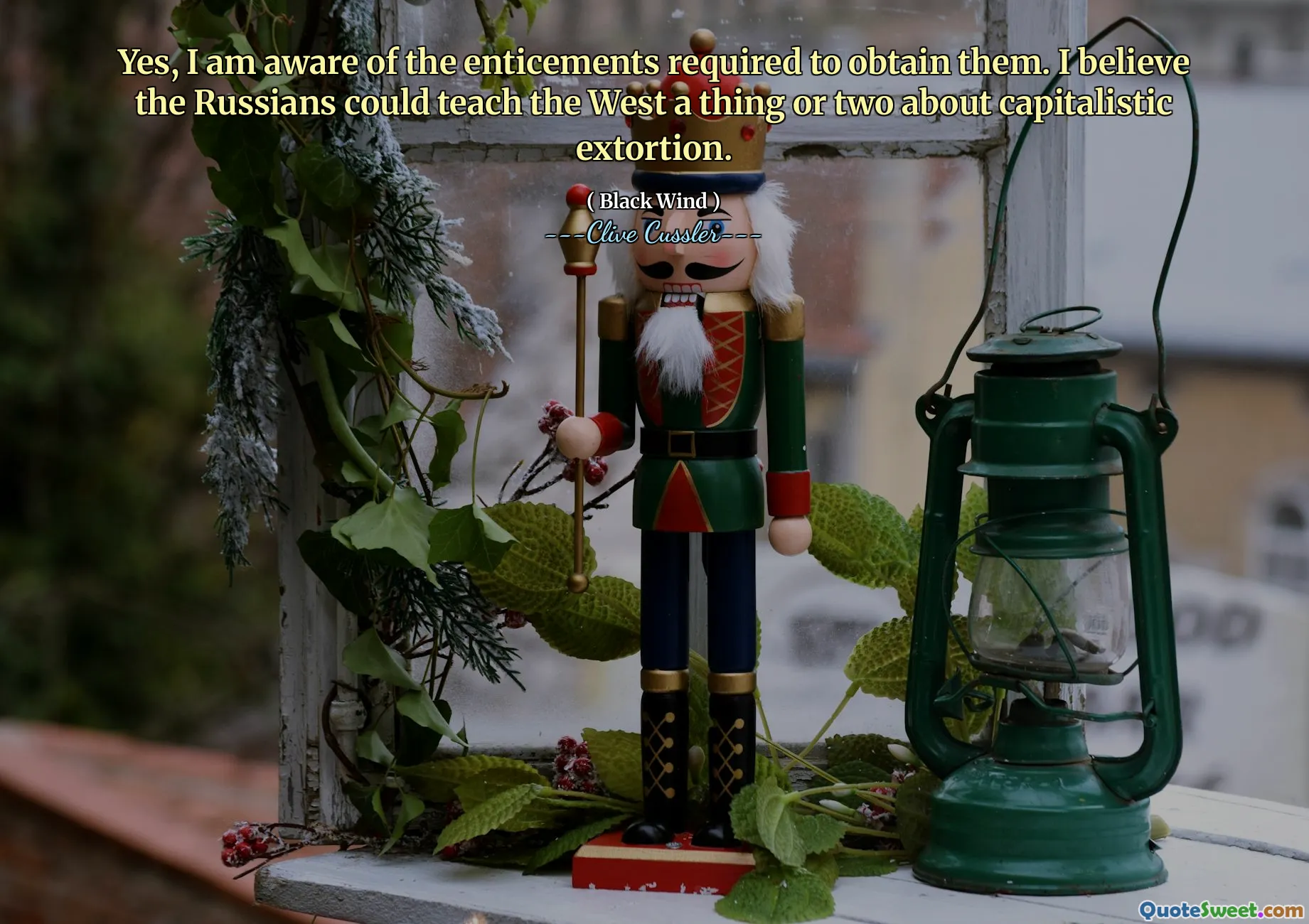
Yes, I am aware of the enticements required to obtain them. I believe the Russians could teach the West a thing or two about capitalistic extortion.
This quote highlights a tacit acknowledgment of the unsettling realities of power dynamics and economic leverage in international relations. The speaker, Kang, exhibits a sense of distaste toward the corrupt practices involved in acquiring certain unspecified commodities or advantages—possibly wealth, influence, or resources. By explicitly stating awareness of the 'enticements,' the quote reveals an understanding that obtaining such things often involves temptation, coercion, or unethical persuasion. The comparison to Russians teaching the West about capitalistic extortion underscores a perception that aggressive, perhaps even ruthless, financial tactics are not exclusive to any one country or system; instead, they are a universal facet of modern geopolitics and economic competition. This reflection prompts a broader consideration of how nations and powerful entities often resort to manipulative or exploitative strategies to gain advantage, blurring the lines between legitimate commerce and extortion. It raises questions about morality, discipline, and the individual or collective conscience in the pursuit of power. Moreover, it encapsulates a tense atmosphere in which such tactics are perceived as prevalent and perhaps even admired for their effectiveness, despite their questionable ethical grounding. When reading between the lines, it invites a critique of the corrupting influence of greed and the mechanisms of control that shape our world. This insight from Clive Cussler's 'Black Wind' suggests a recurring theme of geopolitical manipulation, exposing the often clandestine, shadowy dealings behind international interactions, and challenges us to reflect on the boundary between lawful influence and outright exploitation.






